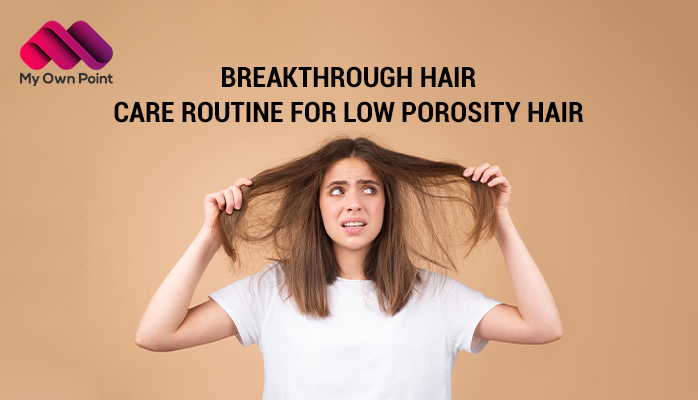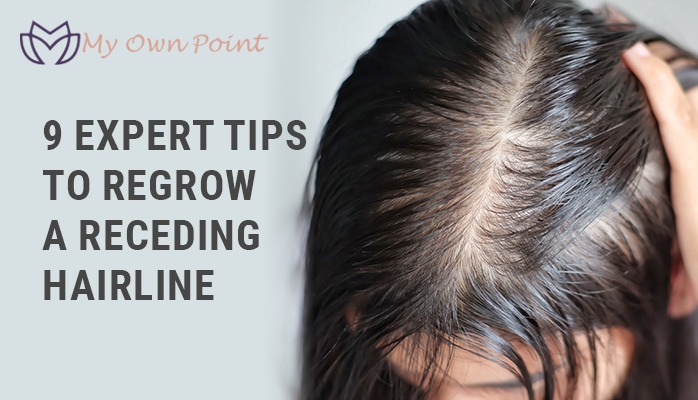Does hair get thinner in monsoon? Then, how to take care of your hair during monsoon? If you want to know the perfect hair care routine in monsoon, read, the article “3 natural nutrients for thicker hair this monsoon”.
This rainy season is what soothes and alleviates the tortures of summer. However, it also poses a significant threat to one’s hair, wherein the constant rainwater exposure and humidity leads to hair problems; on average, 30% mop loss is estimated during this duration according to a study. The high amount of moisture in the atmosphere causes hair follicles to expand and weaken, which causes hair to frizz and be more likely to fall out. Show precedence to the following 3 nutrients– biotin, zinc, and iron while working towards improving your hair health in monsoons. These nutrients also help with hair growth and shielding the hair during adverse weather conditions.
1Also Read: How to Grow Hair Faster Naturally – 10 Expert-Approved Tips
How Does Monsoon Affect Hair?
- Monsoon can cause itchy hair and scalp problems.
- Rainwater may contain pollutants and harmful chemicals.
- Warm, damp conditions foster fungal infections like dandruff.
- Special hair care is essential during the monsoon season.
- Dandruff commonly causes hair fall in both men and women.
- Adding excess oil cause more hair loss.
3 Natural Nutrients for Thicker Hair This Monsoon
1- Biotin (Vitamin B7): The Hair Growth Champion
Biotin B7 is good for hair growth and improves keratin, the protein that forms your hair, skin, and nails.
How Biotin Works:
- Keratin Production: Biotin strengthens keratin in the body, essential for strong and healthy hair.
- Scalp Health: It keeps the scalp healthy and helps hair follicles get the nutrients they need to grow thick and strong.
- Hair Fall Reduction: Taking biotin regularly can help reduce hair loss and make hair look thicker and fuller.
Sources of Biotin:
- Eggs
- Almonds
- Sweet potatoes
- Spinach
- Cauliflower
2- Zinc: The Hair Repair Nutrient
Zinc is essential for growing and repairing hair. It helps the oil glands near hair follicles function correctly, vital for stopping hair loss and dandruff.
How Zinc Works:
- Repair and Growth: Zinc helps repair and grow hair tissues, keeping hair healthy.
- Regulating Oil Glands: It controls the production of sebum, the natural oil from your scalp, which keeps the moisture balance right.
- Dandruff Defense: Zinc reduces dandruff and hair loss by keeping the scalp moist and balanced.
Sources of Zinc:
- Pumpkin seeds
- Chickpeas
- Cashews
- Lentils
- Oysters
Also Read: Pilates vs. Yoga: Which is More Effective for Weight Loss?
3- Iron: The Oxygen Booster
Iron is essential for making haemoglobin, a protein in red blood cells that carries oxygen to the body and delivers oxygen to your scalp and hair follicles, which supports healthy growth.
How Iron Works:
- Oxygen Transport: Iron helps blood carry oxygen better, ensuring hair follicles get enough oxygen, essential for growth.
- Preventing Hair Loss: Iron deficiency often leads to hair loss. Keeping iron levels balanced can help prevent excessive shedding.
- Strengthening Hair: Enough iron makes hair more robust, less brittle, and thicker.
Sources of Iron:
- Red meat
- Spinach
- Lentils
- Quinoa
- Pumpkin seeds
Also Read: Top 10 Anti Ageing Foods for Skin – You Need to Try Now
How to Prevent Hair Fall in Rainy Season
The monsoon season cools down the hot summer weather but also creates challenges for keeping hair healthy. Here are some simple strategies to maintain hair during monsoon:
- Drink Water: Water is crucial for your skin and your hair. Drinking 8-10 glasses of water a day keeps your Scalp hydrated and reduces the chances of dryness and dandruff.
- Select the Right Shampoo and Conditioner: Choosing the proper hair products will also assist your hair. Select a mild, sulfate-free shampoo and conditioner that will suit your hair’s natural oils while soothing and making your hair easy to style.
- Massage the Scalp Frequently: Invigorating your Scalp promotes blood circulation, accelerating hair growth and strengthening the follicles. Before washing the hair, use coconut, almond, or olive oils to massage the Scalp for an hour for the best results.
- Cut Back on Heat Styling: Using excessive heating tools causes hair damage, frizziness, and breakage. Avoid using heat styling tools, such as avoiding damaging your hair with heat styling tools or trying to wear your hair naturally.
- Apply Anti-Frizz Products: Try using anti-frizz serums or leave-in conditioners to combat the monsoon season’s frizz. Damp hair should be applied with a small amount before styling it.
- Shield Your Hair Against Rain: Rainwater contains metals that are harmful to your hair. Whenever possible, sit under the hood of a car and immediately rinse your hair with clean water to eliminate dirt. And remember, when going out in the rain, always cover your hair with a scarf or a hat.
- Have a Balanced Diet: Balanced nutrition, including vitamins, minerals, proteins, and vitamins, by Waters Edge Hair Loss, which includes leafy greens, nuts, seeds, and lean meat, is essential for healthy hair. Proper nutrition strengthens hair and makes it easier to grow, focusing on biotin (b7), zinc, and iron.
- Avoid Tight Hairstyles: Too Tight – Hair is usually held back in fastened ponytails, but this causes damage since any force or strain fractures the strands of hair or causes it to shed. Select a loose hairstyle that won’t stress your hair too much.
Hair gets affected by the harbingers of monsoon. Our diverse selection of hair oils empowers you to combat to combat problems. Upgrading your hair care routine with natural nutrients such as biotin, zinc, and iron can make a considerable difference this monsoon season. You can also go with homemade hair masks, regular oils, weekly trims, and a well-balanced diet for well-nourished hair.
Also Read: Ashwagandha For Hair Growth To Get Stronger Scalp




